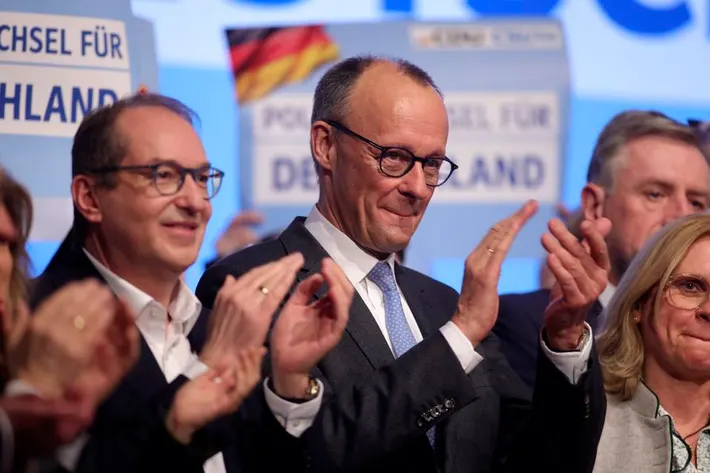Germany’s Christian Democratic Union (CDU) has won a commanding victory in parliamentary elections, while the far-right Alternative for Germany (AfD) secured a historic second place, according to projections from public broadcaster ARD.

The CDU, led by Friedrich Merz, is projected to capture 211 seats in the 630-seat parliament, though coalition formation remains uncertain. The outcome may hinge on whether the Free Democratic Party (FDP) reaches the 5% threshold required for parliamentary representation.
The AfD doubled its support from four years ago, rising from 10.4% to approximately 20%, marking its strongest-ever showing in national politics. The party’s success spans both eastern and western Germany, indicating broader appeal for its anti-immigration platform.
“We were united, our campaign was targeted and we were disciplined,” AfD co-chairman Tino Chrupalla said, appearing with co-chair Alice Weidel. “We can really bring about an epochal change.” However, other major parties have ruled out forming coalitions with the AfD.
The Social Democrats (SPD) performed poorly but could potentially join a coalition with the CDU, depending on final results and whether additional partners are needed.
Dr. Jana Puglierin from the European Council on Foreign Relations characterized the AfD’s rise as part of a larger European trend. “Germany has become a bit more normal, we have been an outlier in Europe with relatively small numbers of the far-right,” she told the BBC.
The election results are based on exit polls from hundreds of polling stations, with official projections confirming initial findings.



